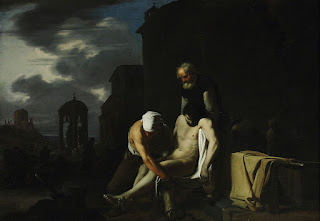 Previously we learned that a man can warn his wife not to conceal herself with a particular fellow. Is that jealousy good or bad? Some say it is forbidden for a man to warn his wife this way. He should always try to maintain peace. A warning of this sort will lead to strife between the husband and wife or a conflict between her and her neighbors. Others say jealousy is caused by the spirit of purity and is good.
Previously we learned that a man can warn his wife not to conceal herself with a particular fellow. Is that jealousy good or bad? Some say it is forbidden for a man to warn his wife this way. He should always try to maintain peace. A warning of this sort will lead to strife between the husband and wife or a conflict between her and her neighbors. Others say jealousy is caused by the spirit of purity and is good.
A long time ago, the spiritual level of men declined. Since men were not blameless themselves, the test of a suspected wife stopped working.
Even when circumstances warrant this, Rabbi Ishmael only permits a man to warn his wife, but Rabbi Akiva makes it an obligation. They have also disagreed similarly in another matter: a Kohen is not allowed to go to a cemetery and become ritually impure. However, he is allowed to do it for his relative. Here too, Rabbi Ishmael says that he is only allowed to do so, but Rabbi Akiva says he should insist and bury his relatives.
Art: Couple at the window by Georg Friedrich Kersting












